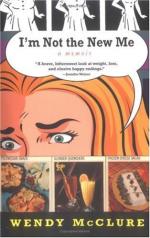condescended to assure us that he would never be
found wasting ammunition on small game.
On the same fortunate occasion he further gave
us to understand that he regarded himself as
being decidedly the superior of our common friend
from Randolph [Mr. Shields]; and feeling, as I
really do, that I, to say the most of myself,
am nothing more than the peer of our friend from
Randolph, I shall regard the gentleman from Coles
as decidedly my superior also; and consequently, in
the course of what I shall have to say, whenever
I shall have occasion to allude to that gentleman
I shall endeavor to adopt that kind of court language
which I understand to be due to decided superiority.
In one faculty, at least, there can be no dispute
of the gentleman’s superiority over me, and most
other men; and that is, the faculty of entangling
a subject so that neither himself, or any other
man, can find head or tail to it.”
[Illustration: Lincoln and his son Thomas, familiarly known as “Tad.”
From a photograph made by Brady early in Mr. Lincoln’s first term.]
[Illustration: Page from Stuart and Lincoln’s fee book.
From the original, owned by Jesse W. Weik, by permission.]
Taking up the resolution on the bank, he declared its meaning:
“Some gentlemen have their stock in their hands, while others, who have more money than they know what to do with, want it; and this, and this alone, is the question, to settle which we are called on to squander thousands of the people’s money. What interest, let me ask, have the people in the settlement of this question? What difference is it to them whether the stock is owned by Judge Smith or Sam Wiggins? If any gentleman be entitled to stock in the bank, which he is kept out of possession of by others, let him assert his right in the Supreme Court, and let him or his antagonist, whichever may be found in the wrong, pay the costs of suit. It is an old maxim, and a very sound one, that he that dances should always pay the fiddler. Now, sir, in the present case, if any gentlemen whose money is a burden to them, choose to lead off a dance, I am decidedly opposed to the people’s money being used to pay the fiddler. No one can doubt that the examination proposed by this resolution must cost the State some ten or twelve thousand dollars; and all this to settle a question in which the people have no interest, and about which they care nothing. These capitalists generally act harmoniously and in concert to fleece the people; and now that they have got into a quarrel with themselves, we are called upon to appropriate the people’s money to settle the quarrel.”
The resolution had declared that the bank practised various methods which were “to the great injury of the people.” Lincoln took the occasion to announce his ideas of the people and the politicians.




